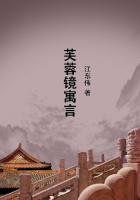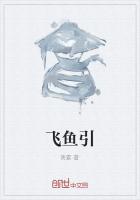When his hunting trip in Uganda was over, Hemingway shipped his specimens and weapons direct from Mombasa to New York, but he himself journeyed south over the few miles that stretched to Zanzibar.
On the outward trip the steamer had touched there, and the little he saw of the place had so charmed him that all the time he was on safari he promised himself he would not return home without revisiting it. On the morning he arrived he had called upon Harris, his consul, to inquire about the hotel; and that evening Harris had returned his call and introduced him at the club.
One of the men there asked Hemingway what brought him to Africa, and when he answered simply and truthfully that he had come to shoot big game, it was as though he had said something clever, and every one smiled. On the way back to the hotel, as they felt their way through the narrow slits in the wall that served as streets, he asked the consul why every one had smiled.
The consul laughed evasively.
"It's a local joke," he explained. "A lot of men come here for reasons best kept to themselves, and they all say what you said, that they've come to shoot big game. It's grown to be a polite way of telling a man it is none of his business.""But I didn't mean it that way," protested Hemingway. "I really have been after big game for the last eight months."In the tone one uses to quiet a drunken man or a child, the consul answered soothingly.
"Of course," he assented-- "of course you have." But to show he was not hopelessly credulous, and to keep Hemingway from involving himself deeper, he hinted tactfully: "Maybe they noticed you came ashore with only one steamer trunk and no gun-cases.""Oh, that's easily explained," laughed Hemingway. "My heavy luggage--"The consul had reached his house and his "boy" was pounding upon it with his heavy staff.
"Please don't explain to me," he begged. "It's quite unnecessary.
Down here we're so darned glad to see any white man that we don't ask anything of him except that he won't hurry away. We judge them as they behave themselves here; we don't care what they are at home or why they left it."Hemingway was highly amused. To find that he, a respectable, sport-loving Hemingway of Massachusetts, should be mistaken for a gun-runner, slave-dealer, or escaping cashier greatly delighted him.
"All right!" he exclaimed. "I'll promise not to bore you with my past, and I agree to be judged by Zanzibar standards. I only hope I can live up to them, for I see I am going to like the place very much."Hemingway kept his promise. He bored no one with confidences as to his ancestors. Of his past he made a point never to speak. He preferred that the little community into which he had dropped should remain unenlightened, should take him as they found him.
Of the fact that a college was named after his grandfather and that on his father's railroad he could travel through many States, he was discreetly silent.
The men of Zanzibar asked no questions. That Hemingway could play a stiff game of tennis, a stiffer game of poker, and, on the piano, songs from home was to them sufficient recommendation. In a week he had become one of the most popular members of Zanzibar society. It was as though he had lived there always. Hemingway found himself reaching out to grasp the warmth of the place as a flower turns to the sun. He discovered that for thirty years something in him had been cheated.
For thirty years he had believed that completely to satisfy his soul all he needed was the gray stone walls and the gray-shingled cabins under the gray skies of New England, that what in nature he most loved was the pine forests and the fields of goldenrod on the rock-bound coast of the North Shore. But now, like a man escaped from prison, he leaped and danced in the glaring sunlight of the equator, he revelled in the reckless generosity of nature, in the glorious confusion of colors, in the "blooming blue" of the Indian Ocean, in the Arabian nights spent upon the housetops under the purple sky, and beneath silver stars so near that he could touch them with his hand.
He found it like being perpetually in a comic opera and playing a part in one. For only the scenic artist would dare to paint houses in such yellow, pink, and cobalt-blue; only a "producer" who had never ventured farther from Broadway than the Atlantic City boardwalk would have conceived costumes so mad and so magnificent. Instinctively he cast the people of Zanzibar in the conventional roles of musical comedy.
His choruses were already in waiting. There was the Sultan's body-guard in gold-laced turbans, the merchants of the bazaars in red fezzes and gowns of flowing silk, the Malay sailors in blue, the black native police in scarlet, the ladies of the harems closely veiled and cloaked, the market women in a single garment of orange, or scarlet, or purple, or of all three, and the happy, hilarious Zanzibari boys in the color God gave them.
For hours he would sit under the yellow-and-green awning of the Greek hotel and watch the procession pass, or he would lie under an umbrella on the beach and laugh as the boatmen lifted their passengers to their shoulders and with them splash through the breakers, or in the bazaars for hours he would bargain with the Indian merchants, or in the great mahogany hall of the Ivory House, to the whisper of a punka and the tinkle of ice in a tall glass, listen to tales of Arab raids, of elephant poachers, of the trade in white and black ivory, of the great explorers who had sat in that same room--of Emin Pasha, of Livingstone, of Stanley. His comic opera lacked only a heroine and the love interest.














